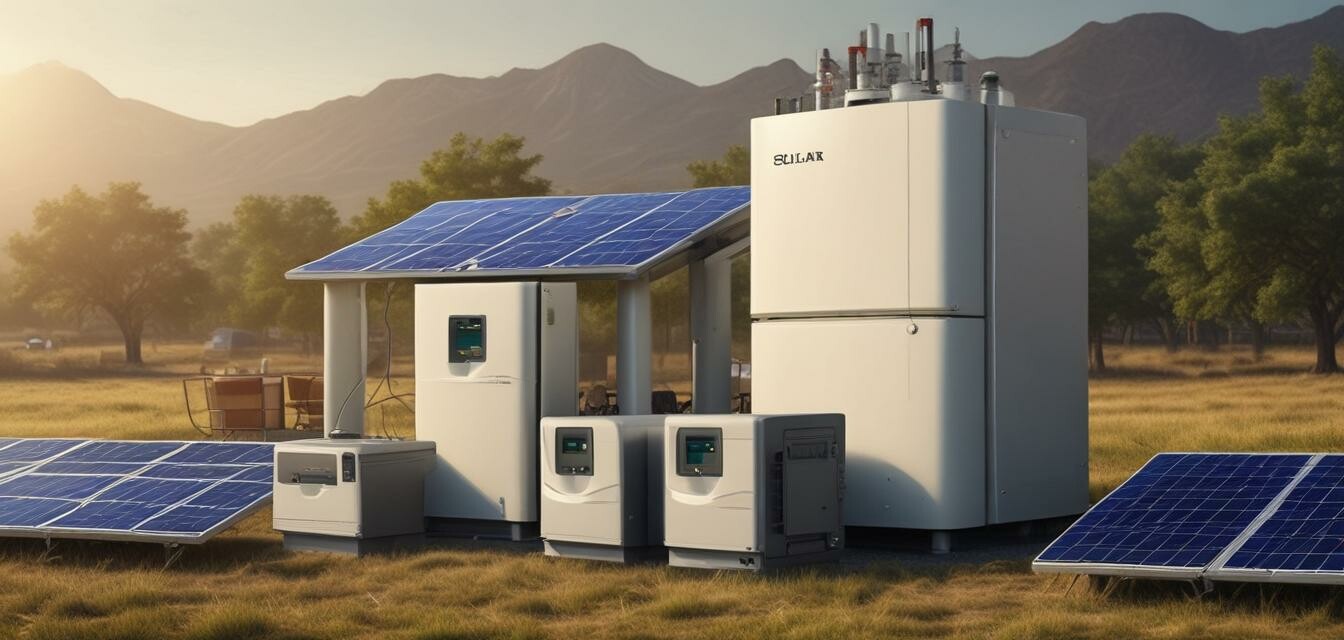
The Role of Inverters in Sustainable Energy Solutions
Key Takeaways
- Inverters convert DC electricity from solar panels into AC electricity usable by home appliances.
- They play a crucial role in monitoring energy production and consumption.
- Using efficient inverters can significantly enhance the overall performance of solar energy systems.
- Inverters can also improve grid stability by managing energy flow effectively.
- The right inverter choice impacts the long-term savings and efficiency of renewable energy investments.
Sustainable energy solutions are becoming increasingly vital as we seek to reduce our carbon footprint and dependency on fossil fuels. Among the various components of solar energy systems, inverters stand out as a linchpin that enables the transformation and management of generated electricity. This article delves into the pivotal role of inverters in sustainable energy solutions and illustrates their importance in optimizing solar energy systems.
What are inverters?
In the context of solar energy systems, inverters are electrical devices that convert the direct current (DC) produced by solar panels into alternating current (AC). This conversion is critical because most home appliances operate on AC electricity. Without inverters, homeowners wouldn’t be able to effectively harness the power of the sun for their everyday energy needs.
The importance of inverters in solar energy systems
Modern solar energy systems are complex environments that require advanced technology to ensure efficiency and effectiveness. Here’s a breakdown of why inverters are essential:
| Function | Impact |
|---|---|
| Conversion of DC to AC | Enables the use of solar energy in household appliances. |
| Monitoring energy production | Helps track performance and efficiency of solar panels. |
| Grid connection | Facilitates the feeding of excess energy back into the grid. |
| Battery integration | Allows for the storage and use of excess energy for later usage. |
Types of inverters
Various types of inverters serve different needs and configurations in solar energy systems:
- String Inverters: These are the most common type of inverter used in residential solar systems.
- Microinverters: Smaller inverters attached to each solar panel, optimizing performance individually.
- Power Optimizers: Working in conjunction with string inverters, these devices enhance performance and monitoring capabilities.
- Battery Inverters: Designed specifically for use with battery storage systems.
Efficiency of inverters
The efficiency of an inverter directly affects the output of solar panels. A high-efficiency inverter minimizes energy losses during the conversion process. Here’s how to assess inverter efficiency:
- Check the inverter’s efficiency rating—look for values above 95%.
- Consider features like maximum power point tracking (MPPT) that enhance overall performance.
- Look for warranties, which often indicate product reliability.
How inverters contribute to sustainability
Inverters play a crucial role in maximizing the benefits of solar energy systems while minimizing their environmental impact:
- Enhancing grid stability: Inverters manage the flow of electricity to stabilize the grid during peak demand.
- Reducing energy waste: Properly functioning inverters ensure that solar energy is used effectively, reducing reliance on traditional electricity sources.
- Supporting energy storage: Inverters facilitate the integration of battery systems, allowing for energy use during non-sunny hours.
The future of inverters in renewable energy
As technology continues to evolve, the inverter landscape is also changing.
Emerging Trends:
- Increased adoption of smart inverters with advanced monitoring capabilities.
- Improved integration between solar systems and smart home technologies.
- Growing trends towards virtual power plants utilizing shared energy resources.
A closer look at inverter brands
Not all inverters are created equal. Here’s a comparison of different brands that commonly serve the market:
| Brand | Efficiency (%) | Warranty (Years) | Type |
|---|---|---|---|
| Brand A | 98 | 10 | String Inverter |
| Brand B | 95 | 20 | Microinverter |
| Brand C | 97 | 15 | Power Optimizer |
Impact on energy savings
Making informed choices about inverters can lead to significant energy savings over time. Here’s how:
- Investing in high-efficiency inverters leads to greater energy output.
- Proper installation and configuration can reduce maintenance costs.
- Optimizing system performance can result in lower electricity bills and faster returns on investment.
Conclusion
The role of inverters in sustainable energy solutions cannot be overstated. They are vital for converting and optimizing the solar energy harnessed by systems designed to reduce our dependency on traditional grid power. By focusing on high-quality inverters, users can not only maximize their energy production but also contribute to a more sustainable future.
Tips for selecting the right inverter
- Assess your energy needs—calculate how much AC power you require.
- Research different types of inverters suited for your solar setup.
- Check reviews and product features before making a purchase.
- Consider local service options for warranty and repairs.
Pros
- Enhances overall system efficiency.
- Facilitates energy monitoring and grid compatibility.
- Supports emerging smart technologies.
Cons
- Initial costs can be significant.
- Requires proper installation for optimum performance.
For more information on solar energy systems and components, visit our News and Trends section.


